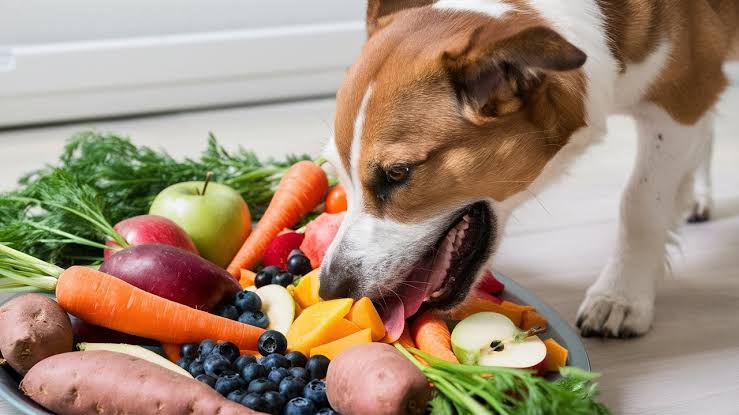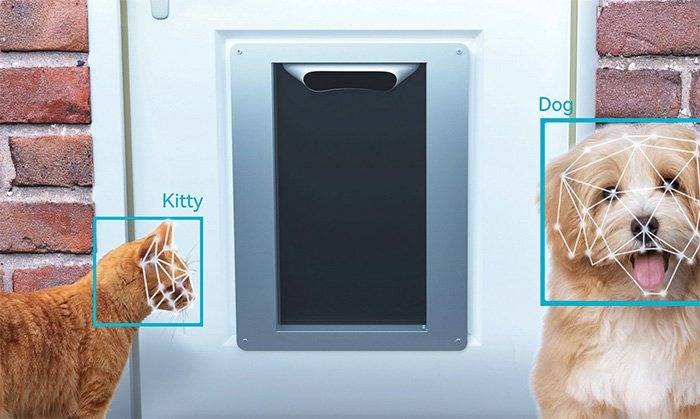
Vegan and Vegetarian Pet Diets: Are They Healthy for Dogs and Cats?
Vegan and vegetarian diets for pets can be challenging to formulate properly, as they require careful supplementation to ensure adequate intake of essential nutrients like taurine, vitamin D, and arachidonic acid. While achievable with proper planning and veterinary guidance, these diets may not be suitable for all animals.
🐶 Pet Star
12 min read · 31, Jan 2025

Dogs:
Dogs are naturally omnivores, meaning their bodies are designed to digest both plant and animal matter. While it's technically possible to create a nutritionally complete vegan diet for dogs, it requires meticulous planning and supplementation.
- Challenges:
- Taurine deficiency: Taurine is an essential amino acid that dogs cannot synthesize on their own. It's found in animal products like meat and fish. A deficiency can lead to serious health problems, including heart disease and blindness.
- Vitamin D deficiency: Dogs obtain vitamin D primarily through sunlight exposure and animal-based sources. Plant-based sources of vitamin D may not be as readily absorbed.
- Arachidonic acid deficiency: This omega-6 fatty acid is crucial for skin and coat health. While found in some plant-based oils, its bioavailability may be lower than from animal sources.
- Protein quality: Plant-based protein sources may not be as readily digestible or bioavailable as animal proteins.
- Meeting Nutritional Needs:
- Careful supplementation: Vegan dog foods must be carefully formulated with added taurine, vitamin D, and arachidonic acid.
- High-quality plant-based protein sources: Utilize protein sources like lentils, peas, and soy in appropriate amounts.
- Fortified foods: Consider commercially available vegan dog foods that are specifically formulated to meet all canine nutritional requirements.
Cats:
Cats are obligate carnivores, meaning their bodies are strictly designed to digest meat. Their nutritional needs are highly specific, and it's incredibly challenging to meet them through a plant-based diet.
- Challenges:
- Taurine deficiency: Cats cannot synthesize taurine, and a deficiency can have severe consequences, including heart disease and blindness.
- Vitamin A deficiency: Cats require preformed vitamin A, which is found in animal-based sources like liver. Plant-based sources of vitamin A (beta-carotene) are not readily converted to the usable form for cats.
- Arachidonic acid deficiency: Similar to dogs, cats require this essential fatty acid for optimal health.
- Digestive issues: Cats may have difficulty digesting plant-based proteins efficiently.
- Meeting Nutritional Needs:
- Highly specialized diets: Creating a nutritionally complete vegan diet for cats requires expert formulation and meticulous supplementation.
- Commercial vegan cat foods: While available, these foods often require significant supplementation and may not be suitable for all cats.
Vegetarian Diets:
Vegetarian diets for pets, which include animal products like eggs and dairy, are generally easier to formulate than vegan diets. However, they still require careful consideration.
- Challenges:
- Calcium and phosphorus balance: Maintaining the proper calcium-to-phosphorus ratio is crucial for bone health.
- Vitamin D supplementation: May still be necessary depending on the chosen ingredients.
- Potential for nutrient deficiencies: Depending on the specific ingredients, there may be potential for deficiencies in certain vitamins and minerals.
- Meeting Nutritional Needs:
- Include eggs and dairy: These provide valuable protein, vitamins, and minerals.
- Choose high-quality protein sources: Utilize lean meats, poultry, and fish as primary protein sources.
- Supplement as needed: Consult with your veterinarian to determine if any additional supplementation is required.
Important Considerations:
- Consult with your veterinarian: Before transitioning your pet to a vegan or vegetarian diet, it's crucial to consult with your veterinarian. They can assess your pet's individual needs and help you create a safe and nutritionally balanced plan.
- Gradual transition: Introduce any dietary changes gradually to allow your pet's digestive system to adjust.
- Regular monitoring: Closely monitor your pet's health for any signs of nutritional deficiencies, such as weight loss, dull coat, or lethargy.
- High-quality ingredients: Choose high-quality, fresh ingredients for homemade diets.
- Commercial options: Consider commercially available vegan and vegetarian pet foods that are specifically formulated to meet your pet's needs.
Q&A Section
Ques 1: Are there any ethical concerns with feeding pets a vegan or vegetarian diet?
Ans: Some argue that feeding pets a plant-based diet is more ethical as it aligns with a compassionate lifestyle. However, others believe that it's unnatural to deny carnivorous animals their natural dietary needs.
Ques 2: Can I simply switch my pet to a vegan or vegetarian diet without consulting a veterinarian?
Ans: Absolutely not! Abruptly switching your pet to a plant-based diet without proper guidance can have serious health consequences.
Ques 3: Are there any breeds that are more suitable for vegan or vegetarian diets?
Ans: There's no scientific evidence to suggest that certain breeds are more suitable for plant-based diets than others.
Ques 4: What are the potential long-term health effects of a vegan or vegetarian diet for pets?
Ans: Long-term studies on the effects of vegan and vegetarian diets on pet health are limited. However, with proper planning and monitoring, these diets can be nutritionally adequate for some pets.
Similar Articles
Find more relatable content in similar Articles

Smart Homes for Pets: Automated Feeders, Doors, and Mo..
As smart home technology advan.. Read More

How Climate Change Affects Wild and Domestic Animals...
Climate change is dramatically.. Read More

Sustainable Pet Products: What to Look for in 2025...
As sustainability becomes a ce.. Read More

How Pets Strengthen Family Bonds...
Pets are more than just compan.. Read More
Explore Other Categories
© 2024 Copyrights by rPets. All Rights Reserved.